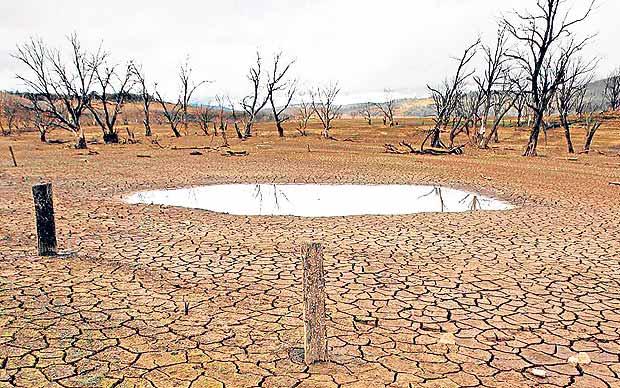Exploring conflict in ‘Coming of the Dry Season’

Elliot Ziwira @the Bookstore
CONFLICT, according to Devito (1992:243), “refers to disagreements . . . between or among connected individuals, close friends, lovers or family members,” and as posited by Simons (1986:23), it (conflict) is “a clash of interests in which one party’s gain is another’s loss.” Ideology, as postulated by Cayne (1988), is a body of ideas used in support of an economic, political or social theory; the way of thinking of a class, culture or individual.
In the light of the above it is imperative to note that for a compromise to be reached there should be conflicting parties, whose values and norms, though averse, may be used to enrich either part. As such, though each party may be striving to gain an upper hand in the outcome, there need not necessarily be antagonism or hostility, as subscribed by the pathological theory which scoffs at conflict. Though conflicting parties may express disgust at each other to the point of scuffling, they are not foes per se as they might share some common ground.
In “Coming of the Dry Season” (1972), Charles Mungoshi explores the nature of ideological and cultural conflict, which exposes the individual as he/she tries to locate himself/herself in the national discourse. Using the metaphors of drought, the setting sun, and the rolling world, the writer exposes conflict at the personal, family, community and national platforms. The setting sun, which is symbolic of the old order, whose fortunes are on the decline, is juxtaposed with the new world, which is on a roller coaster, as symbolised by the metaphor of the rolling world. However, as these two conflicting worlds try to merge they encounter a void, which is metaphorically apt in the dry season of their toils. This is especially so because of ideological differences.
The cultural and ideological differences are not only a result of the generational gap that exists between parents and their children, but are also a culmination of colonial deprivation through Western education. Colonial education creates individuals, who, because of lack of belonging, are alienated from their families and communities.
In their struggle for identity, these individuals fail to appreciate the traditional norms and values of their people and at the same time cannot be consumed into the alien culture of the imperialist, as they know little about it. This rationale also obtains in Mongo Beti’s “Mission to Kala” (1957).
In the story “The Mountain”, Chemai, who, like the Old Man and Moab’s mother in “The Setting Sun and the Rolling World” and “Coming of the Dry Season” respectively, epitomises the old world with its roots firmly stack in African traditional norms and values, finds himself at pains to defend his culture. His friend Nharo, as his name may suggest, belongs to the new whirlwind sweeping across the African landscape, like Mari and Moab. His ebullient and dare-devil nature is not only characteristic of youth, but is a culmination of Western education as he is in Form Two. It is the latter that puts him at loggerheads with Chemai, an exponent of untainted traditional norms.
Chemai’s belief in the existence of the supernatural in determining destiny and a people’s way of life is scoffed at by the cantankerous and all-knowing Nharo, who clings to scantily discernible scientific explanations to phenomena; and the role of the individual in steering destiny.
In the end, however, although he is not convinced that white miners abandoned their operations on the mountain considered sacred by his people, because angered ancestral spirits caused their mines to fill up with water, Nharo is scared of the goat that follows them. Unable to explain its existence in scientific terms, he finds solace in the traditional herbs administered by his grandmother to cleanse him of evil spirits.
The metaphorically titled story “The setting Sun and the Rolling World”, pits a father, Old Musoni against his son, Nhamo, who believes that there is nothing left for him in the land. Driven by his desire to improve his life, he tells his father that he wants to leave for the city. Old Musoni is adamant that there is no other way except that of the land, which has always been the pride of his people.
However, because the old man is anchored by his traditional beliefs, he fails to realise that the sun is setting on his order, which is fraught with inadequacies; and that culture sometimes is restrictive to the individual as it determines what may be deemed homely, humane and a way of life. Yes, the land is where the roots are, and everything that one does should be seen to have some spiritual connectedness.
Notwithstanding that the land has a spiritual flair about it, it is no longer productive “as it has been overworked and gives nothing more, and the family is almost broken up,” as Nhamo observes. As a proponent of the rolling world, Nhamo is conscious of the dynamics of culture as perceived through Western education. Like Nhamo, Moab and Mari, he believes that a static culture leads to paralysis, stasis and malaise, detrimental to progress at all platforms; familial, communal and national.
However, the bane of it all is that these educated youth who are supposed to steer the nation to freedom do not have a clear ideology to reach Nirvana. Like Lucifer in “Waiting for the Rain” (1975), Nhamo is aware that the land is overworked and has thus become barren, but his decision to leave for the city in search of employment is as deceitful as it is ambitious.
The reason why the African clings to his barren existence is colonial displacement. Colonial subjugation is the culprit and not the land, yet Nhamo, like his fellow Western educated youths, besieges the city, not to question the status quo, but to protect it through labour. As a consequence, the colonial creations of the city like the city woman and the bar, which prey on them frustrate their efforts.
When their parents, whose dreams remain etched on the horizon remind them of their lack, as is the case in “Coming of the Dry Season” and “S.O.S from the Past” they decry the claustrophobic nature of home and the family unit, forgetting that they share the same enemy; the imperialist, whose creations are at the centre of their suffering.
Inasmuch as their ideological differences persist without creating interfaces for compromise, Africans will remain subjugated, and their toils will come to nothing. Through interior monologue, Mungoshi highlights Old Musoni and Nhamo’s feelings as they question their existence in an oppressive world.
The old man thinks out loud: “You will go on son, something you don’t know will drive you on, past ruins and more ruins until there is only one ruin left; yourself.” As a father and an African, he knows that there is nothing left to sustain the family as the land has become useless, yet at the same time he knows that the city has no capacity to sustain his son either; as a monster of prey, it will sap his energy, reduce him to a skeleton and eventually destroy him. Nhamo on the other hand reasons that coming back home is returning to ruins, but is not aware how the city will groom him.
Although, the sun is setting on the old world, it does not seem to be shining on the new one either, which rolls recklessly and blindly across the landscape; gathering no moss.









Comments